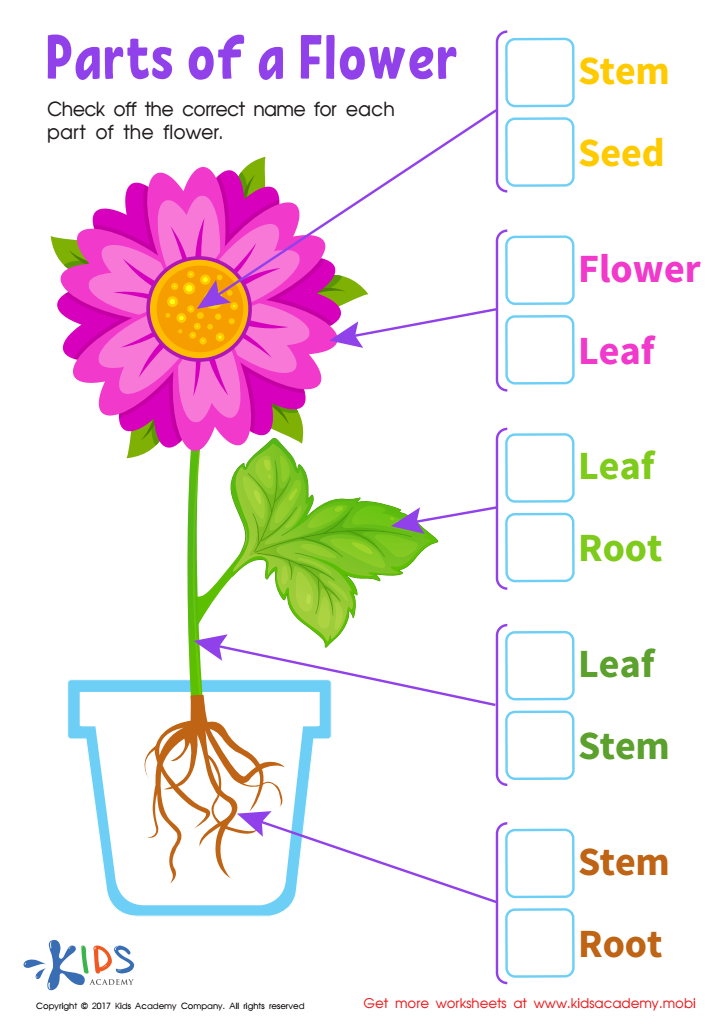Life Science Worksheets for Ages 6-9
3 filtered results
-
From - To
Explore our engaging Life Science Worksheets designed for children aged 6-9! These worksheets create fun learning experiences focusing on the world around us, introducing young minds to essential science concepts. Children will delve into topics like ecosystems, plants, animals, and their environments through colorful activities and hands-on exercises. With our printable formats, educators and parents can easily incorporate these resources into lesson plans or home learning. Foster curiosity and a love for science as kids enhance their skills in observation, critical thinking, and problem-solving. Check out our diverse selection and support your child's growth in understanding life's wonders today!


Parts Flower Printable


Herbivores Printable


Carnivores Worksheet
Parents and teachers should care about life science for ages 6-9 because it lays the foundation for understanding the world around us and fosters curiosity. At this young age, children are naturally inquisitive about nature, animals, plants, and the human body. Introducing them to life science nurtures this curiosity and encourages exploration, observation, and critical thinking.
Life science teaches essential concepts such as ecosystems, habitats, and the interdependence of life forms. Understanding these concepts helps children grasp the importance of biodiversity and environmental stewardship, fostering a sense of responsibility for the planet. Furthermore, life science enhances literacy and numeracy skills through activities that involve observation, data collection, and simple experiments.
Moreover, early exposure to life science can inspire future interests and career paths in fields such as medicine, conservation, and environmental science. It also helps promote health awareness by teaching children about nutrition, physical well-being, and the human body.
By engaging children in life science at an early age, parents and teachers encourage a lifelong appreciation for nature and science, empowering them to become informed and active participants in their communities and advocates for a sustainable future.
 Assign to My Students
Assign to My Students







.jpg)







